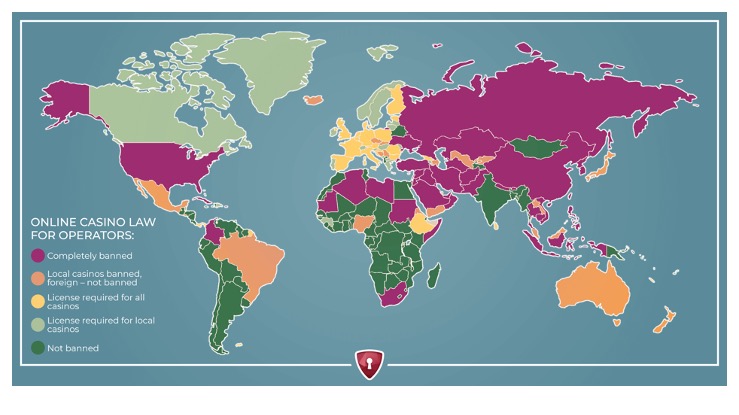CommentsGambling activities are widely accessible and promoted through media and corporate sponsorships in all areas of life.
Players love to come to an online or crypto casino site that has secure backing and a huge pool of games, such as our favorite one, Goldwin, but that’s not the case with all countries.
In some places, even a friendly game of poker with real money could get you in serious trouble. Read today's article about the top 5 countries with the most restrictive gambling laws.
1. Japan
Legally speaking, it's difficult to tell what's allowed in Japan as far as gambling goes. Until recently, gambling of any kind was strictly forbidden. Several exceptions, however, allowed for gambling to continue in various forms. The historical significance of Pachinko, for instance, made it a legal activity. Betting on horses at the track and other forms of sports betting were also generally accepted. Land-based casino games were finally made legal in Japan thanks to the Integrated Resort Programme Law (2016).
2. Singapore
Private events in Singapore are illegal without a special permit under the Private Lotteries Act. Public lotteries are subject to additional rules under the Common Gaming Houses Act. This means that games like Bingo, lotteries, machine games, and others are illegal unless expressly permitted by law. Sports betting on land is also prohibited unless conducted through one of Singapore's three authorized gambling operators (the Singapore Pools, the Singapore Totalisator Board, or the Singapore Turf Club). The two public casinos (yes, there are only two) are the only places where people can legally gamble on the ground, and even then, only under particular conditions outlined in the Casino Control Act. All forms of online gambling are illegal in Singapore except for remote sports betting at the Singapore Turf Club or Singapore Pools.

3. Qatar
Regarding gambling laws, Qatar is the biggest challenge on the planet. Sports betting, along with other forms of gambling, is strictly forbidden. Because of this total ban, there is a thriving underground gambling scene, but many people pay the price for their participation. Although it is illegal to gamble online, some people still go ahead and do it because they can gain access to offshore gambling sites despite the government's best efforts to prevent them.
4. Poland
Land-based and online gambling have historically been legal in Poland but under the strict monopoly of the Polish government. Gambling with offshore operators is technically permitted but unregulated. Many changes have been made to the Gambling Act since it was first passed in 2009 to conform to EU standards.
On 1 April 2017, new regulations were enacted for online gambling, requiring international operators to apply for sports betting licenses. Only the government-sanctioned gambling monopoly in the country may offer actual money wagers on sports or casino games online.
5. Cambodia
As a result of a severe increase in gambling addiction and problem gambling, gambling of any kind is now strictly forbidden in Cambodia. Nonetheless, Cambodians can still participate in 5 private lotteries and other forms of government-sponsored gaming. However, the 1996 Suppression of Gambling Act exempts all non-citizens from compliance.
Conclusion
It's fascinating to learn about the jurisdictions that prohibit gambling on a global scale. Even though gambling is illegal in many countries, it is still widely practiced. Despite the risks, it's clear that people enjoy casinos and online gambling.
Note: The information provided in this article is strictly for entertainment purposes. Please make sure you research the laws in your country before attending any gambling establishment or activity, either online or physical.

















